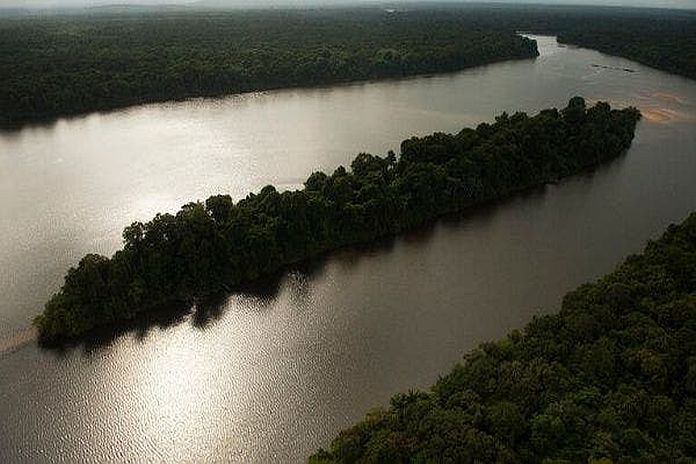CARACAS, Venezuela, (teleSUR) — Venezuela reaffirms that it does not recognize the jurisdiction of the International Court of Justice (ICJ) in the territorial dispute over the disputed Essequibo area.
Through a statement issued on Friday by the Venezuelan foreign ministry, the government of president Nicolás Maduro informed that it participated “as a courtesy,” not as part of the proceedings, in a virtual meeting with the president of the ICJ, Joan E. Donoghue, following a unilateral demand by Guyana in the midst of the territorial dispute over the Essequibo.
“Venezuela has expressly reaffirmed its historical position of non-recognition of the jurisdiction of the Court to hear the territorial dispute over the Guayana Essequibo,” reads the document published by Venezuelan foreign minister Jorge Arreaza.
However, it adds, Venezuela stresses the validity of the Geneva Agreement of 1966 to reach a practical and mutually satisfactory settlement for the parties, through friendly negotiations.
The Venezuelan government considered that Guyana’s claim “damages the sense, purpose and reason”, emphasizing that there is no basis of jurisdiction for this case.
Likewise, it expressed its concern for the “unjustified haste” of this legal process, since, it explained, for the Bolivarian government, it is “a secular matter of great transcendence.”
For more than a century, Venezuela and Guyana, which used to be a colony of the United Kingdom, have been disputing a territory of some 159,000 square kilometers.
In 1897, Venezuela and the UK signed a treaty in which they undertook to resolve the boundary problem through international arbitration, which ruled in favor of the UK, since the representation of Venezuela, without the presence of a member from the Bolivarian country, had been left in the hands of the US.
Tensions increased in 2015, after the US oil company Exxon discovered an important oilfield in the maritime part of the claimed territory. Guyana asked the ICJ on March 29, 2018 to resolve the conflict, two months after the United Nations secretary-general Antonio Guterres referred the border dispute to that court.
In December 2020, the Court declared itself “competent” to analyze “the validity of the arbitration award of October 3, 1899,” which drew the border between both countries and which had been annulled in 1966, after the signing of the Geneva Agreement.
In view of this situation, the Venezuelan government, which has never recognized Guyana’s sovereignty over the area and assures that the controversy must be solved within the framework of the Geneva Agreement, established a new maritime territory on its Atlantic coast to “safeguard the country’s spaces,” and at the same time sent a letter of protest to the UN.





